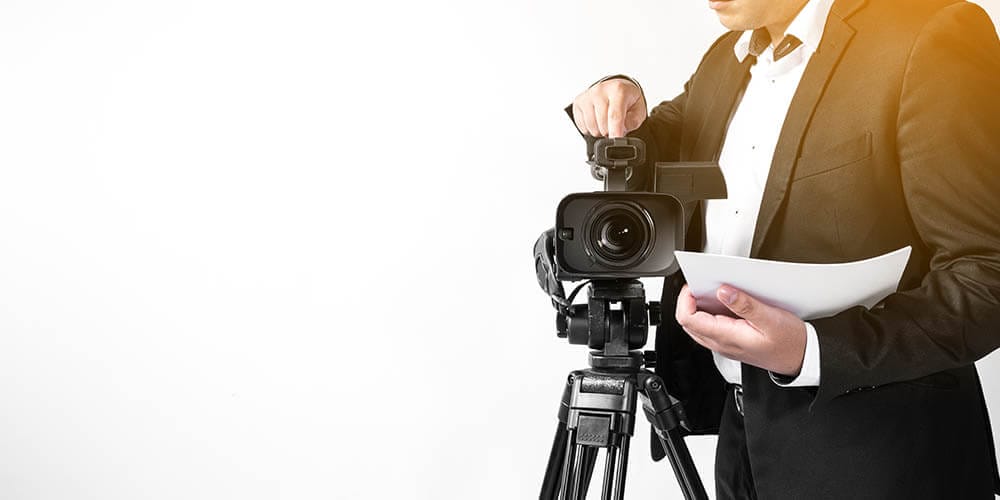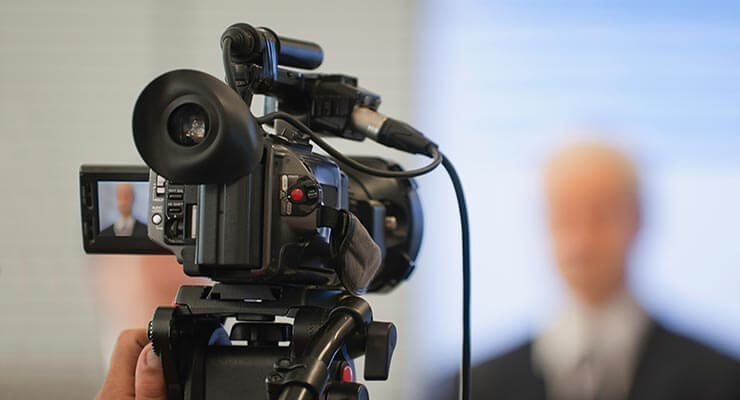Legal Videography: A Critical Asset for Effective Trial Presentations
Legal Videography: A Critical Asset for Effective Trial Presentations
Blog Article
The Value of Legal Videography in Modern Legal Process
In modern legal settings, the combination of legal videography has actually come to be progressively significant, functioning as an essential device in the documentation and presentation of evidence. This practice not only guarantees an exact aesthetic account of statements however likewise catches essential non-verbal signs that might affect juror assumptions. As the lawful landscape advances with technical innovations, the effects of high-quality videography extend past plain documents, elevating crucial questions concerning its effect on judicial outcomes and the general stability of the legal process. What continues to be to be discovered is just how these growths may shape future legal techniques.
Definition of Lawful Videography
Legal videography describes the specialized method of recording sound and visual web content for use in lawful settings. This technique includes numerous sorts of recordings, consisting of depositions, witness statements, and test presentations, which serve to record essential facets of legal process. The primary purpose is to create a precise and dependable aesthetic record that can be used in court or for pre-trial prep work.
Legal videographers are educated specialists who use advanced recording devices and strategies to ensure top notch video and audio capture. They are skilled in the lawful standards and demands controling the admissibility of video evidence, making their expertise invaluable in the lawful procedure.

Advantages in Legal Procedures
The unification of lawful videography into modern-day legal process provides countless advantages that improve both the effectiveness and effectiveness of the judicial procedure. One primary advantage is the exact and irreversible documents of court room procedures, which can be invaluable for appeals and record-keeping. Unlike conventional transcription approaches, video clip catches non-verbal cues and the general context of testimonies, offering a richer, a lot more nuanced account of occasions.
Additionally, lawful videography can streamline the presentation of evidence (legal videography). By visually showing aspects of an instance, such as mishap restorations or expert analyses, attorneys can convey intricate information much more successfully, making it less complicated for discretionary to realize crucial points. This can result in even more enlightened decision-making and outcomes
Furthermore, legal videography promotes availability. Tape-recorded depositions can be examined remotely, permitting legal teams to prepare more extensively without the restrictions of geographical constraints. This benefit aids in situation preparation and strategy advancement.
Last but not least, the professional see top quality of videography provides credibility to the proceedings, reinforcing the severity and relevance of the lawful procedure. legal videography. In summary, legal videography considerably adds to a much more transparent, reliable, and impactful judicial system


Enhancing Witness Testimonies
Witness statements play a crucial function in legal proceedings, and the use of videography substantially boosts their effect and performance. By catching the subtleties of a witness's disposition, tone, and body language, legal videography provides a comprehensive understanding of the statement that created transcripts alone can not communicate. This aesthetic depiction aids in preserving the witness's initial statements, making sure that jurors and lawyers can regard the testament in find more information its designated form.
Furthermore, videography enables for an extra engaging discussion of evidence, as jurors are typically much more responsive to audio-visual materials compared to typical paperwork. The capability to observe a witness's emotion enhances the credibility of their statements, thereby raising the persuasive power of their statement. Furthermore, video recordings can be utilized for training and prep work, allowing lawyers and witnesses to assess and refine their presentations.
In instances where witnesses may be inaccessible for trial, videography makes sure that their testimonies can still be provided, guarding the stability of their accounts. In general, the integration of videography in legal process significantly boosts the top quality and reliability of witness statements, fostering a much more educated and equitable judicial process.
Influence On Court Understanding
Recording witness testimonies on video not just enhances their shipment yet additionally considerably influences court understanding of the situation. The visual and auditory aspects of video clip recordings offer jurors with a more immersive experience, permitting them to view subtleties in tone, body language, and emotional expressions that could be shed in written records. This multi-sensory interaction fosters a deeper link with the testament, helping jurors in realizing the intricacies of the case.
In addition, lawful videography can aid clarify elaborate details and guarantee that key factors exist in a coherent way. Jurors frequently value the possibility to revisit critical testimonies during deliberations, reinforcing their understanding of the proof. The capacity to observe a witness's temperament can likewise influence their trustworthiness evaluation, as jurors might form judgments based upon visual cues that reverberate with their perceptions of truthfulness and integrity.
Furthermore, making use of video clip can enhance the presentation of evidence, making it a lot more easily accessible and remarkable for jurors. On the whole, the calculated implementation of legal videography plays an essential function in boosting court understanding, ultimately adding to a fairer and more check that informed lawful procedure.
Future Trends in Legal Videography
Increasingly, lawyers are recognizing the transformative capacity of emerging technologies in legal videography. As the lawful landscape evolves, the assimilation of expert system (AI) and artificial intelligence is established to change the means video proof is recorded, processed, and provided. AI formulas can assess huge quantities of video clip footage to recognize appropriate sections, boosting performance and making certain that vital details is not neglected.
Moreover, advancements in virtual reality (VR) and increased reality (AR) are positioned to give immersive experiences in courts. These modern technologies make it possible for jurors to imagine criminal activity scenes or recognize complex scenarios in an extra interesting way, possibly improving their comprehension and retention of evidence.
The rise of cloud-based remedies also assists in the secure storage and sharing of video evidence, permitting smooth collaboration amongst legal teams. legal videography. As remote hearings end up being a lot more widespread, high-quality lawful videography will certainly play an important duty in making sure that remote statements are recorded properly and offered successfully
Conclusion
Finally, legal videography functions as a necessary tool in contemporary lawful proceedings, boosting the precision and clarity of evidence discussion. By catching witness testaments in a visual style, it facilitates a much deeper understanding for jurors and protects essential statements for future reference. As innovation proceeds to evolve, the combination of high-quality videography is anticipated to expand, further strengthening its duty in advertising the integrity and performance of the legal procedure.
Report this page